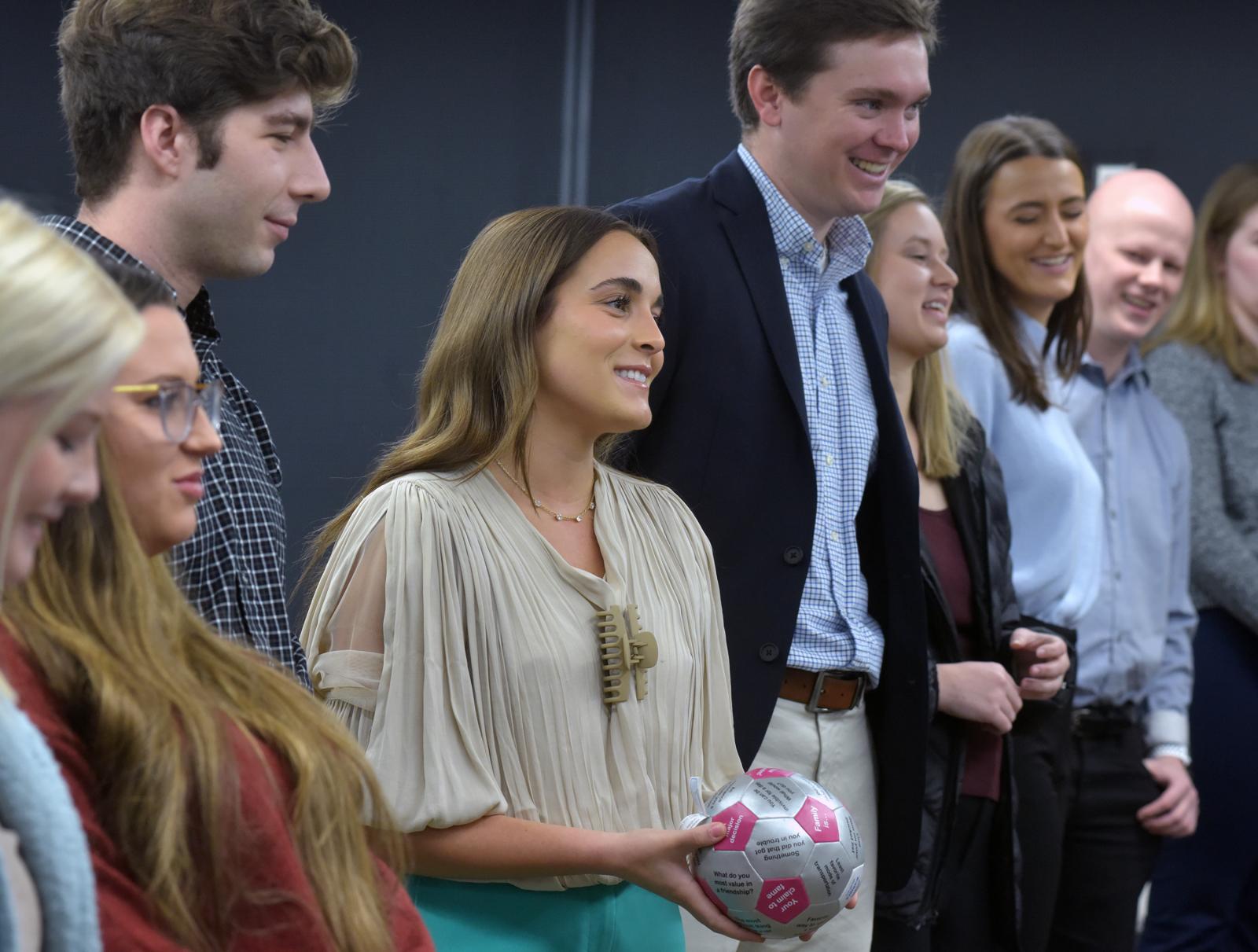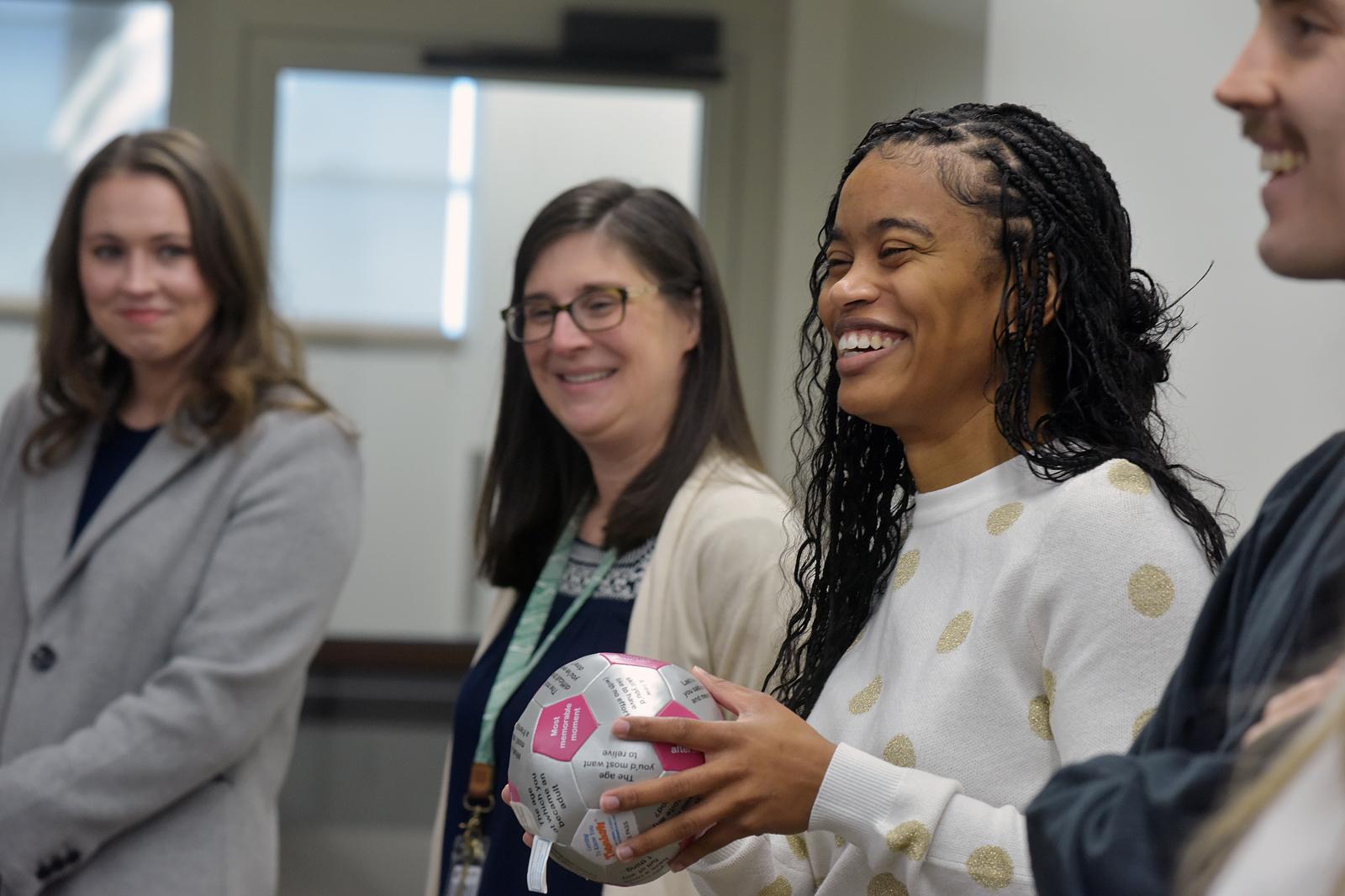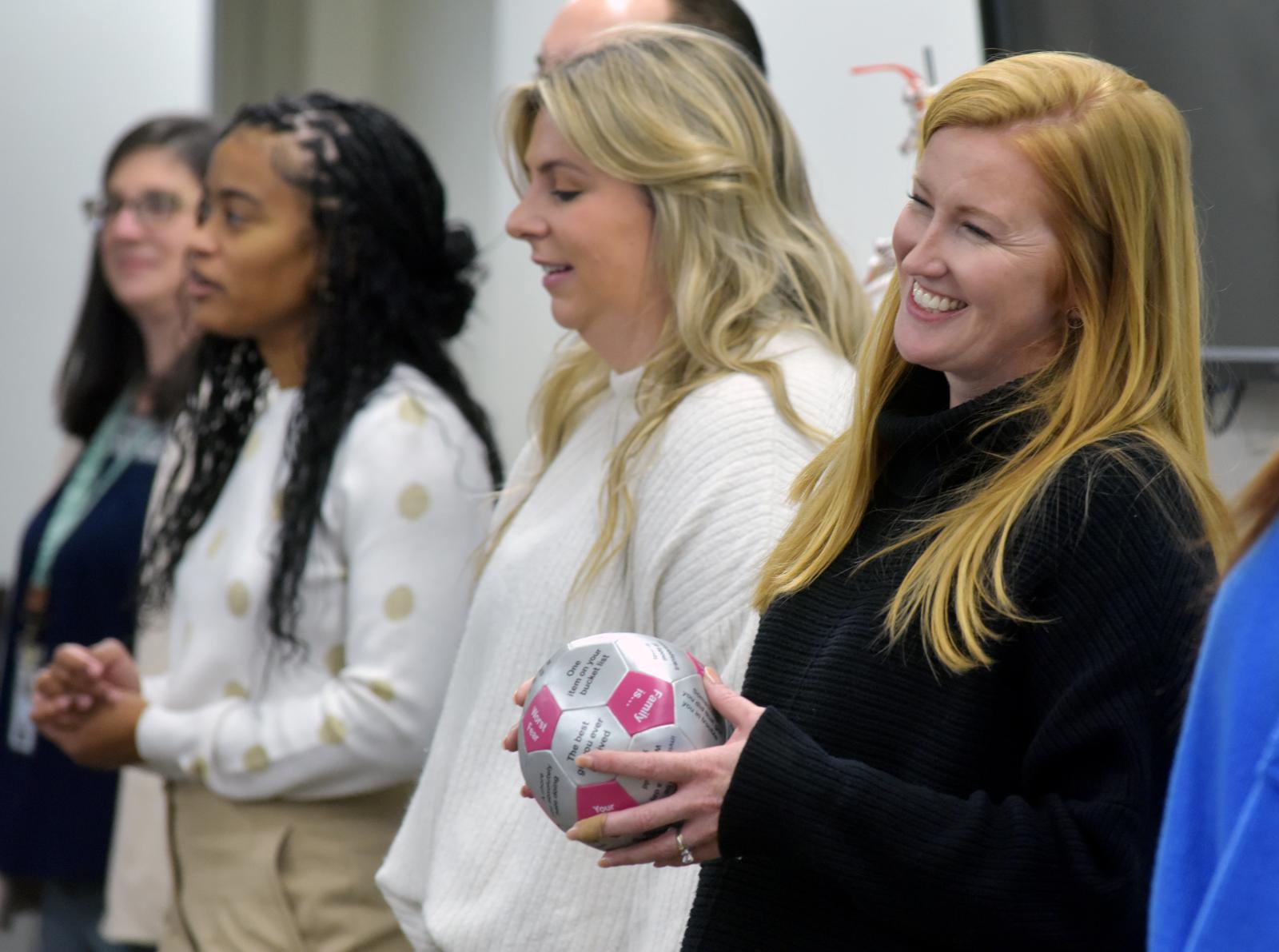MSU-Meridian Physician Assistant Studies program fills health care disparity gaps



Contact: Marianne Todd
MERIDIAN, Miss.—Chloe McDaniel had spent nearly all her teenage years in and out of hospitals for multiple surgeries to correct her failing heart rhythms, a condition that left her with a permanent pacemaker.
Now, at 23, as part of MSU-Meridian’s fourth cohort of students seeking a Master of Physician Assistant Studies, McDaniel hopes to leverage her awareness of rural health care disparities to fill what she describes as substantial gaps to health care access.
“Just being exposed to doctors in that field made me fall in love with science and patient care at an early age,” said the Pierre Part, Louisiana, resident. “A lot of doctors don’t get much time with their patients. I want to be able to form a relationship with them. I want them to know that even though I am a professional, I am a person, too, and I have empathy for them.”
She decided upon MSU-Meridian’s seven-semester Master of Physician Assistant Studies program because she felt it would give her a chance to do just that. McDaniel is one in a class of 30 students who will spend the next two and a half years between hands-on classroom learning and clinical practice at affiliate hospitals in Mississippi, Louisiana and Alabama to join the proliferating industry of physician assistants in rural health care settings where providers are needed most.
Physician assistants serve the role of physician extender, said Shey Washburn, PA Studies program director at MSU-Meridian.
“They evaluate patients, diagnose, charge, prescribe and do procedures,” said Washburn, adding that physician assistants have more flexibility than physicians because they can easily alter their field of practice, moving from one discipline to another with no further educational requirement.
Such flexibility makes PAs a critical and necessary component to resolving rural health care access issues.
When Washburn registered as a physician assistant in 2011, there were as few as 152 physician assistant providers in Mississippi, a state that only began licensing such providers in 2000. Today, there are 369 with 18 being added to the register from MSU-Meridian’s first Master of Assistant Physician Studies graduate class in May 2023. Another 85 are working toward their degrees.
But McDaniel had another advantage as an undergraduate.
Working in a Houma, Louisiana, charity hospital, she came face-to-face with the stark realities of rural health care also as a caregiver.
“A lot of the patients were low income,” she said. “I was exposed to so many lifestyles, so many different ethnicities and languages. It brought a challenge to me and taught me how to be a problem solver, even as a tech or a medical assistant.”
In Mississippi, 80 of its 82 counties are designated as rural areas by the Health Resources and Services Administration, a federal agency that works to improve access to health care services for people who are uninsured, isolated or medically vulnerable.
For this reason, the mission of the MSU-Meridian Master of Physician Assistant Studies—the first public program of its kind in Mississippi—is so vitally important to rural communities, said Terry Dale Cruse, MSU-Meridian associate vice president and head of campus.
“As a land-grant university we are compelled to meet the critical needs of the State of Mississippi. While that may look different now than it did in our origin as an agricultural and mechanical college, certainly meeting issues of health disparity throughout the state is at the heart of our land-grant mission,” he said.
Madison Shumpert of Nettleton also is part of McDaniel’s cohort.
“We don’t even have a single stoplight in Nettleton, but we have two clinics,” she said. “One is on the highway by the Sonic, and the other is in a more residential area.”
Like McDaniel, Shumpert received an early education in the health care disparities that exist in rural communities.
“I can’t say I was a victim of it, but I grew up seeing it,” said Shumpert, who graduated from MSU in 2022. “I got my degree in sociology, and it helped me connect to the broader picture, cultural concepts, underserved populations, disparities among impoverished people, a lack of resources and equitable care.”
As a volunteer firefighter, Shumpert stocked first-responder trucks with medical supplies.
“We responded to shootings, accidents, traumas, cardiac arrests, and we functioned even with limited resources,” she said. “Then, when I went to the Delta, I really saw firsthand what was going on. These people don’t have what they need. I saw it from a smaller scope, and as I grew, the scope got bigger.”
Shumpert said she watched as emergency rooms filled with people seeking routine medical care because they lacked insurance or access to providers.
“There were people in the waiting rooms with chest pains, but they couldn’t get in because the system was so backed up,” she said. “At MSU, when we started talking about these concepts in sociology, it all started making more sense, and I said, ‘I’ve got to do something about this.’ We need good people here in Mississippi to provide equitable care.”
The degree drives a higher income in rural areas where hospitals are challenged with attracting health care professionals due to a lack of education within those communities, Washburn said, adding that students who seek such degrees often return home to work.
“There is a major return on investment. After two and a half years, our graduates are coming out with significantly high-income potential with a salary range from $108,000 to $145,000,” she said. “As baby boomer physicians age and retire, we’re not generating enough new providers. So many states have a health care provider shortage, and Mississippi is in that category, which creates a higher demand for all roles.”
MSU-Meridian’s Master of Physician Assistant Studies is a way to meet and improve that demand, she said.
“The studies that have been published on this really show the only major predictor of filling those gaps is training people from those areas,” Washburn said. “People tend to return home. Our goal is to recruit from those areas so we can send students back into those areas.”
Alexis Grant said she intends to return to her Gadsden, Alabama, home to practice once she has graduated from the program.
After working in a 36-bed hospital during her undergraduate years at the University of Alabama at Birmingham, Grant said she wants to combine her experience in emergency medicine with obstetrics and gynecology.
“In a rural setting like that people don’t have a lot of education as far as medicine goes, so there are a lot of education gaps,” she said. “I wanted to come here [to MSU-Meridian] because I wanted to remain in the South, and it wasn’t very far from home. I’m very family oriented, so that’s important to me.”
Mark Lescher of Tallahassee said MSU pharmacology students recommended the program to him while he was earning a bachelor’s degree in biology at a Florida college and working at a radiology clinic.
“I chose this program because it’s in-class and not online like other universities. I wanted the hands-on experience,” he said. “I also wanted to be affiliated with an SEC school—and it just felt wholesome.”
His goal is to combine radiology and surgery to practice interventional radiology, he said.
Mitchell Jones said he sought the MSU-Meridian program due to the flexibility that comes as a physician assistant.
“I can work in surgery or in the emergency room or in orthopedics. I can get a mix of working in a clinic or in a surgical center, and I can see myself going anywhere in the country to work,” he said. “The physician assistant field is a hidden gem. The lateral mobility of the field helps with burnout. If you don’t like something, you can easily hop to something else.”
Washburn said students are required to complete seven five-week rotations in hospital and clinic settings: pediatrics, internal medicine, emergency medicine, family medicine, general surgery, behavioral health and women’s health.
“They get two elective rotations and a standardized test after each rotation,” she said. “Then there is a summative phase and a final didactic to prepare for their boards, a comprehensive final exam and a performance exam to show that they’re workforce ready.”
Washburn said initially 270 applicants sought program admission to MSU-Meridian’s Master of Physician Assistant Studies, which accommodates 30 incoming students each January.
For more information, visit meridian.msstate.edu/pa or phone 601-696-2320.
Photos by Marianne Todd